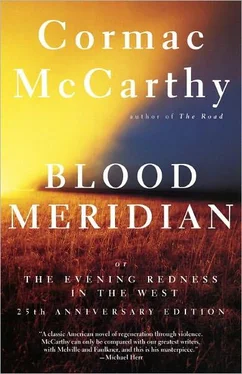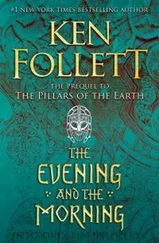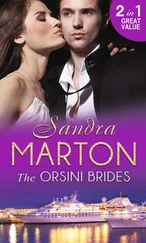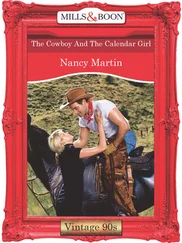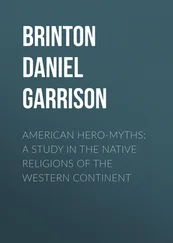Vaya tranquilo, he said. Un accidente, nada más.
Mire, said the Apache. Mire la oreja de mi caballo.
He steadied the animal’s head to show it but it jerked loose and slung the broken ear about so that blood sprayed the riders. Horseblood or any blood a tremor ran that perilous architecture and the ponies stood rigid and quivering in the reddened sunrise and the desert under them hummed like a snaredrum. The tensile properties of this unratified truce were abused to the utmost of their enduring when the judge stood slightly in the saddle and raised his arm and spoke out a greeting beyond them.
Another eight or ten mounted warriors had ridden out from the wall. Their leader was a huge man with a huge head and he was dressed in overalls cut off at the knees to accommodate the leggingtops of his moccasins and he wore a checked shirt and a red scarf. He carried no arms but the men at either side of him were armed with shortbarreled rifles and they also carried the saddle pistols and other accoutrements of the murdered scouts. As they approached the other savages deferred and gave way before them. The indian whose horse had been bitten pointed out this injury to them but the leader only nodded affably. He turned his mount quarterwise to the judge and it arched its neck and he sat it well. Buenos días, he said. De dónde viene?
The judge smiled and touched the withered garland at his brow, forgetting possibly that he had no hat. He presented his chief Glanton very formally. Introductions were exchanged. The man’s name was Mangas and he was cordial and spoke Spanish well. When the rider of the injured horse again put forth his claim for consideration this man dismounted and took hold of the animal’s head and examined it. He was bandylegged for all his height and he was strangely proportioned. He looked up at the Americans and he looked at the other riders and waved his hand at them.
Andale, he said. He turned to Glanton. Ellos son amigables. Un poco borracho, nada más.
The Apache riders had begun to extricate themselves from among the Americans like men backing out of a thornthicket. The Americans stood their rifles upright and Mangas led the injured horse forward and turned its head up, containing the animal solely with his hands and the white eye rolling crazily. After some discussion it became plain that whatever the assessment of damage levied there was no specie acceptable by way of payment other than whiskey.
Glanton spat and eyed the man. No hay Whiskey, he said.
Silence fell. The Apaches looked from one to the other. They looked at the saddle wallets and canteens and gourds. Cómo? said Mangas.
No hay whiskey, said Glanton.
Mangas let go the rough hide headstall of the horse. His men watched him. He looked toward the walled town and he looked at the judge. No whiskey? he said.
No whiskey.
His among the clouded faces seemed unperturbed. He looked over the Americans, their gear. In truth they did not look like men who might have whiskey they hadnt drunk. The judge and Glanton sat their mounts and offered nothing further in the way of parley.
Hay whiskey en Tucson, said Mangas.
Sin duda, said the judge. Y soldados también. He put forward his horse, his rifle in one hand and the reins in the other. Glanton moved. The horse behind him shifted into motion. Then Glanton stopped.
Tiene oro? he said.
Sí.
Cuánto.
Bastante.
Glanton looked at the judge then at Mangas again. Bueno, he said. Tres días. Aquí. Un barril de whiskey.
Un barril?
Un barril. He nudged the pony and the Apaches gave way and Glanton and the judge and those who followed rode singlefile toward the gates of the squalid mud town that sat burning in the winter sunrise on the plain.
* * *
The lieutenant in charge of the little garrison was named Couts. He had been to the coast with Major Graham’s command and returned here four days ago to find the town under an informal investment by the Apaches. They were drunk on tiswin they’d brewed and there had been shooting in the night two nights running and an incessant clamor for whiskey. The garrison had a twelvepound demiculverin loaded with musketballs mounted on the revetment and Couts expected the savages would withdraw when they could get nothing more to drink. He was very formal and he addressed Glanton as Captain. None of the tattered partisans had even dismounted. They looked about at the bleak and ruinous town. A blindfolded burro tethered to a pole was turning a pugmill, circling endlessly, the wooden millshaft creaking in its blocks. Chickens and smaller birds were scratching at the base of the mill. The pole was a good four feet off the ground yet the birds ducked or squatted each time it passed overhead. In the dust of the plaza lay a number of men apparently asleep. White, indian, Mexican. Some covered with blankets and some not. At the far end of the square there was a public whippingpost that was dark about its base where dogs had pissed on it. The lieutenant followed their gaze. Glanton pushed back his hat and looked down from his horse.
Where in this pukehole can a man get a drink? he said.
It was the first word any of them had spoken. Couts looked them over. Haggard and haunted and blacked by the sun. The lines and pores of their skin deeply grimed with gunblack where they’d washed the bores of their weapons. Even the horses looked alien to any he’d ever seen, decked as they were in human hair and teeth and skin. Save for their guns and buckles and a few pieces of metal in the harness of the animals there was nothing about these arrivals to suggest even the discovery of the wheel.
There are several places, said the lieutenant. None open yet though, I’m afraid.
They’re fixin to get that way, said Glanton. He nudged the horse forward. He did not speak again and none of the others had spoken at all. As they crossed the plaza a few vagrants raised their heads up out of their blankets and looked after them.
The bar they entered was a square mud room and the proprietor set about serving them in his underwear. They sat on a bench at a wooden table in the gloom drinking sullenly.
Where you all from? said the proprietor.
Glanton and the judge went out to see if they could recruit any men from the rabble reposing in the dust of the square. Some of them were sitting, squinting in the sun. A man with a bowieknife was offering to cut blades with anyone at a wager to see who had the better steel. The judge went among them with his smile.
Captain what all you got in them saddlegrips?
Glanton turned. He and the judge carried their valises across their shoulders. The man who’d spoken was propped against a post with one knee drawn up to support his elbow.
These bags? said Glanton.
Them bags.
These here bags are full of gold and silver, said Glanton, for they were.
The idler grinned and spat.
That’s why he’s a wantin to go to Californy, said another. Account of he’s done got a satchel full of gold now.
The judge smiled benignly at the wastrels. You’re liable to take a chill out here, he said. Who’s for the gold fields now.
One man rose and took a few steps away and began to piss in the street.
Maybe the wild man’ll go with ye, called another. Him and Cloyce’ll make ye good hands.
They been tryin to go for long enough.
Glanton and the judge sought them out. A rude tent thrown up out of an old tarp. A sign that said: See The Wild Man Two Bits. They passed behind a wagonsheet where within a crude cage of paloverde poles crouched a naked imbecile. The floor of the cage was littered with filth and trodden food and flies clambered about everywhere. The idiot was small and misshapen and his face was smeared with feces and he sat peering at them with dull hostility silently chewing a turd.
Читать дальше
